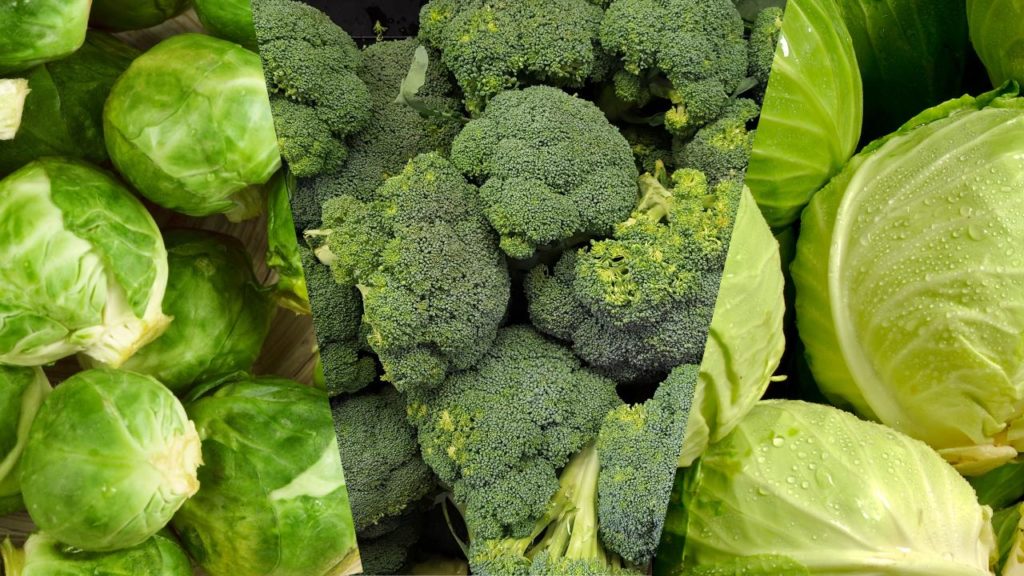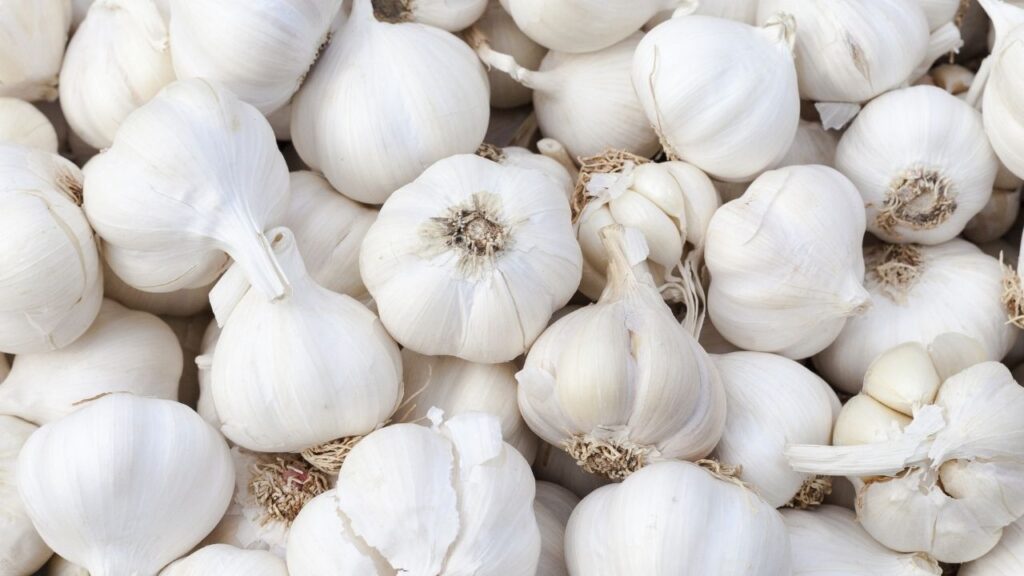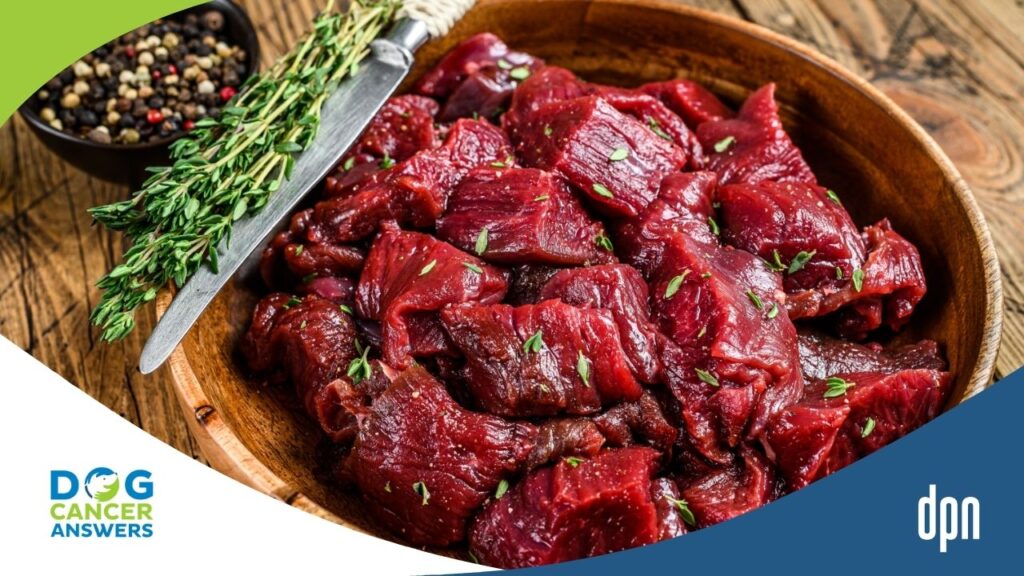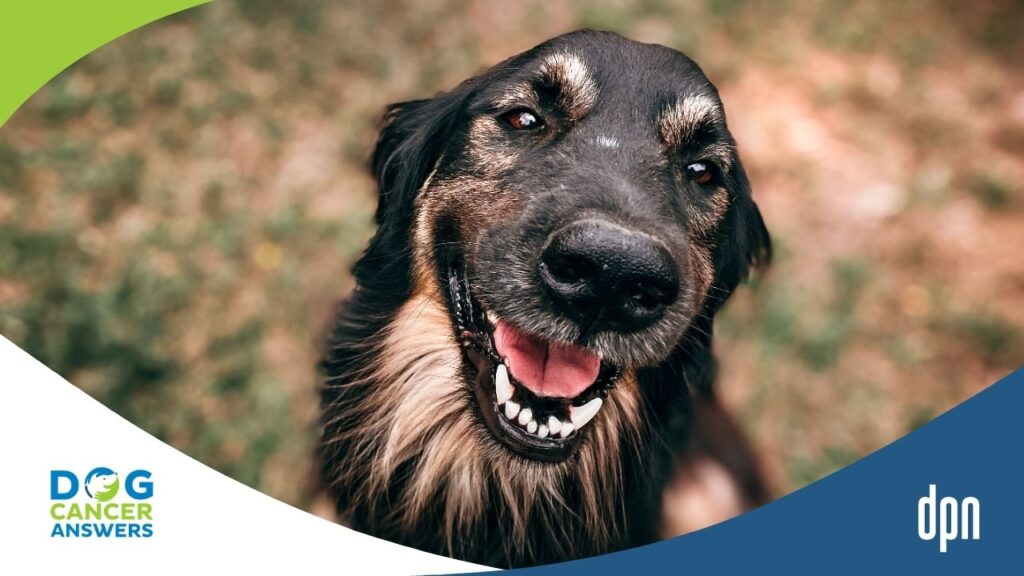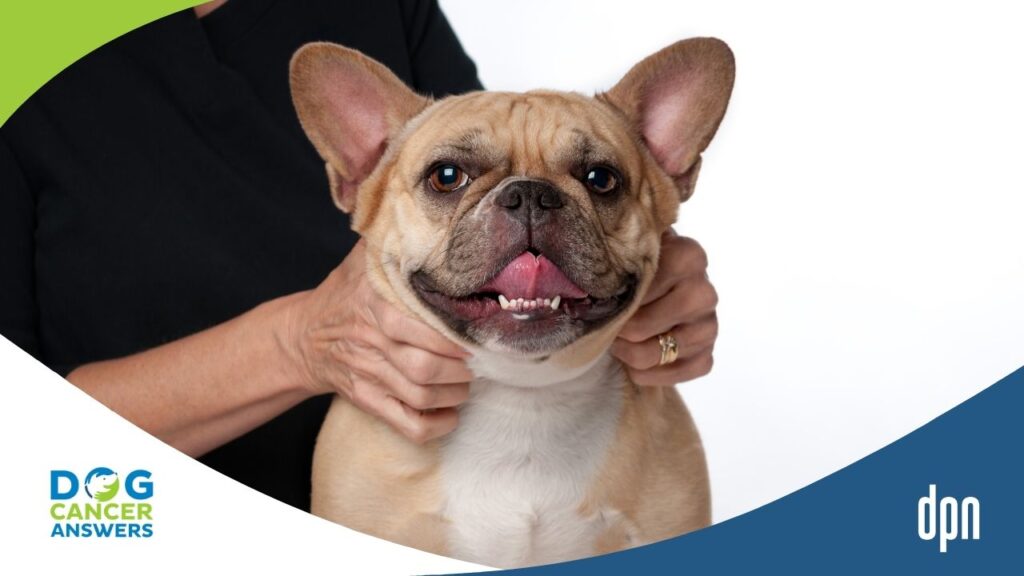EPISODE 96 | RELEASED November 16, 2020
Can Dogs Eat Garlic? │ Dr. Demian Dressler Q&A
With so many mixed signals about the benefits of giving fresh garlic to dogs with cancer, it’s no secret that this topic has become such a controversial one. To clear up some of the controversy, we brought in lead author of The Dog Cancer Survival Guide, Dr. Demian Dressler. He advises listeners on why he recommends it in his book and as part of the Dog Cancer Diet.
SHOW NOTES
Some of the topics that you will hear in this week’s show are the therapeutic benefits garlic has on cancer cells, the effect of garlic on inflammation in the body, the precautions that pet owners should take before starting their dogs on garlic, as well as Dr. Dressler’s recommended guidelines for giving your dog garlic based on their body weight.
You can reach out to Dr. Demian Dressler directly on his veterinary hospital’s website: https://VetinKihei.com.
>> Dr. Dressler: When we’re talking about garlic, let’s look at inflammation. So, one of the hallmarks of cancer is inflammation and there’s a dietary source with inflammation. In other words, the modern diets that we have now are what we call pro-inflammatory. Inflammation is one of those factors that increases pro-cancer cascade.
>> Announcer: Welcome to Dog Cancer Answers. Where we help you help your dog with cancer. Here’s your host, James Jacobson.
>> James Jacobson: Hello friends. Today’s Q&A topic seems to be on the minds of a lot of dog lovers. The question is, can dogs eat garlic? And by eat–what I mean is, is garlic safe for dogs? Given the conflicting advice found on the internet.
Dr. Demian Dressler, one of our regulars is here to answer that question. And now some of you, I know are readers of Dr. Dressler’s best-selling book, The Dog Cancer Survival Guide. So, you may recognize this topic immediately from chapter fourteen–and by the way, the book, The Dog Cancer Survival Guide: Full Spectrum Treatments to Optimize Your Dog’s Life Quality and Longevity is the sponsor of today’s episode.
And so if you don’t have a copy yet, you may want to check it out at dogcancebook.com.
Anyway, in the book, there is an entire chapter dedicated to what you should give to a dog with cancer, including Dr. Dressler’s recommended supplements, a full recipe for what has become the world-renowned Dog Cancer Diet, and a list of the vitamins and minerals that you should be giving on a daily basis if you’re caring for a dog with cancer. I can tell you as someone who has a dog with cancer, my beloved Kanga– I can attest to the fact that the Dog Cancer Diet, which can include garlic as you’ll hear, can be a game changer in your dog’s cancer journey.
So, now let’s get started with this week’s question about giving dogs, garlic.
Dr. Dressler, thanks for being with us today. We’re going back into the mail bag. We have a lot of questions about food. And today we have a question about garlic. Can dogs eat garlic? There’s so much controversial advice online. What are your thoughts about dogs and garlic?
>> Dr. Dressler: So, this is one of these questions that I think we have to widen back a little bit and recognize that the dose makes the poison, or the dose makes the medicine.
Because if we’re having a small amount of a substance that can be beneficial versus a larger amount of that substance, that can be toxic. And you look at pretty much every therapy that we have. If we’re using a dose it’s tolerated, you can get beneficial effects, but if you give 10 times the beneficial dose, the therapeutic dose, you can end up poisoning your dog.
And so the dose makes the poison.
So garlic is one of the things like that. If a dog takes a lot of garlic, there is the probability or possibility. I should say that not only could you be looking at digestive upset, but also anemia–it’s much more common in cats by the way. But nonetheless, there are some dogs that are sensitive to that and the garlic has an effect in the red blood cells and the red blood cells explode at high doses, but garlic is also a therapeutic tool.
>> James Jacobson: Let’s talk about that. Why would you give garlic to the dogs in the first place?
>> Dr. Dressler: Well, it’s got certain substances, like allicin that are anti-inflammatory and have some modest anti-cancer effects. And so that was one of the reasons why small amounts of garlic are included in the Dog Cancer Diet, that’s in the Dog Cancer Survival Guide. And also on the diet download on the dogcancerblog.com.
>> James Jacobson: Okay. So let’s talk a little bit about garlic dosing specifically. What’s the dose that you recommend?
>> Dr. Dressler: So if you’re looking for a practical dose, you take your average large breed dog, let’s say 50 pounds, one teaspoon of fresh minced garlic, per day is a safe dose. And I’ve looked at this pretty carefully. That means if you have a 25-pound dog, you can give up too one half of a teaspoon of fresh minced garlic in a day, or if you have a hundred-pound dog, you could do two teaspoons of fresh minced garlic in a day as part of an overall anti-cancer diet.
>> James Jacobson: And does that go backwards? So like a 12 and a half pound dog. Can you just keep dividing this that way?
>> Dr. Dressler: Yeah, about a quarter of a teaspoon of, again fresh minced garlic. But you know, you always want to check with your veterinarian first on the us, because let’s say that your dog has a pre-existing problem with anemia at that doses.
You should also understand that some dogs like garlic and some dogs dislike garlic, and we’re talking about raw garlic.
>> James Jacobson: The stuff in jars that’s preserved and…?
>> Dr. Dressler: Well, some of the ones in jars, I think are jars of fresh chopped garlic. But what we’re not talking about is cooked garlic that’s cooked in butter or olive oil or something like that.
So it’s fresh garlic. But again, check with your veterinarian on the subject to make sure that your dog doesn’t have anemia tendencies or preexisting anemia tendencies. Cause that’s the problem that the garlic toxicity can produce. But also make sure that your dog is capable of dietary changes without much of a problem. Discuss it with your veterinarian before you start.
Garlic is not expected to cause any issues, but if you have a weakness that it’s inherent in the dog manifesting as a low red blood cell count caused by some medical problem. Well, you just want to try to avoid those types of things. And the other thing is, if you’ve got a dog, that’s got a very sensitive GI tract, like you change foods and the dog vomits, or has diarrhea or something. Some dogs just don’t tolerate new things in their diet–generally or across the board. So give garlic under veterinary supervision, keep the doses safe.
And if you’re in doubt, always do a tolerance test. Start with a very, very, very low dose lower than the one that had just said like a quarter of it, say, do it for a few days just to make sure that everything is fine.
Make sure there’s no vomiting or diarrhea or loss of appetite but do check with your veterinarian first.
>> James Jacobson: Okay. So, let’s explore a little deeper. You said it has some of these anti-inflammatory characteristics. That’s why you like it?
>> Dr. Dressler: Right. And so when we’re talking about garlic, let’s look at inflammation.
So one of the hallmarks of cancer is inflammation. There’s like six basic hallmarks of cancer, but inflammation is a big piece of it. And there’s a dietary source with inflammation. In other words, the modern diets that we have now are what we call pro-inflammatory. And these are human diets, as well as a lot of the commercial dog foods, the diets do create microscopic inflammation in the body.
Now cancer tends to thrive in an environment that is connected with inflammation or has inflammation in it. It actually promotes cancer cell growth promotes DNA mutations that contribute to carcinogenesis, which is a way of saying, it tends to make normal cells. At higher risk for turning into cancer cells. High degrees of inflammation and not good for the immune response. Immune suppression is also connected with cancer. Cancers are abnormal cells in the body and one of the problems that bodies face when they’re trying to clear cancer cells is the immune system is unable to get rid of cancer cells.
But it’s interesting if you look at the progression of cancer, cause the cancers start with normal cells. And it could be during our lifetime or it could be even generations preceding our lifetime.
There are a number of different changes that have to happen before a normal cell will turn into a cancerous cell. But to get back to the point, inflammation is one of those factors that increases that pro-cancer cascade that odds of developing cancer.
And if you have cancer, your dog has cancer propagating it. That means making it worse.
>> James Jacobson: Would you use garlic as part of a healthy diet for dogs that don’t have cancers?
>> Dr. Dressler: I would.
>> James Jacobson: In small amounts?
>> Dr. Dressler: Yeah, I would
>> James Jacobson: We’ll put a link in the show notes to the amounts that you recommend based on weight, but it’s really a small amount and…
>> Dr. Dressler: Yeah, it’s a very small amount–and there’s an article in the blog that addresses this specifically.
>> James Jacobson: Okay. We’ll put a link to that. And again, don’t use cooked– raw is where you get the benefits.
>> Dr. Dressler: Yeah. Heating does a lot of different things to bioactive compounds or compounds in the body, which is one of the reasons why, when we’re talking about cancer diet, we’re talking about low cooking temperatures and that’s a whole other subject, but short story is that raw garlic is a better thing to do.
>> James Jacobson: One of the things that I think we should address, I guess the last point really is this controversy. Cause I mean, people see that you recommend garlic is a small part of the Dog Cancer Diet, and then they just get inflamed and people are, Oh my God, that’s wrong. That’s poison. How do you respond?
>> Dr. Dressler: Well, people get inflamed about all kinds of things.
>> James Jacobson: Especially these days…
>> Dr. Dressler: People who did get inflamed about things tend to get inflamed about a lot of different things in their life. So they’re inflamed people–I guess that’s my initial thought. The second thought is that we human beings and I include myself in this, prefer things to be simple. And if you practice in an area or you do something for a long period of time–what appears simple is complicated to somebody who’s not done it for a long time.
So when I say things like the dose has impact on the subject, that is to say the dose makes the poison, or the dose makes the therapy. For me, that’s really obvious. But, for somebody who likes to think in black and white terms… that’s going to be something that they don’t really want to confront.
The other thing is when people are sort of reacting in that way, unpleasantly, they’re not actually interested in receiving information. That’s not what their primary agenda is. They’re actually. Interested in being inflamed.
>> James Jacobson: So it’s not poison if used in the right amount. In fact, it’s therapeutic and use fresh garlic.
>> Dr. Dressler: Yeah.
>> James Jacobson: Dr. Dressler, thank you so much. We will have links to that article in the show notes.
>> Dr. Dressler: Thank you.
>> James Jacobson: Well, friend that about for today’s show to access the shownotes for today’s episode go directly to dogcanceranswers.com/garlic. It’ll take you straight to the shownotes for today’s episode.
And also on our website, you’ll be able to listen to or download any of our previous episodes.
That website again is dogcanceranswers.com. Of course we are on all the social media channels and you can get those links. Our website.
Now, if you like our podcast, please, please, please subscribe to it in your favorite podcast app. Because new shows are coming every week and you’ll be able to select the ones that will best help you and your dog by subscribing to our podcast.
And remember subscribing to a podcast is free. I just spoke with a listener today who didn’t know that. So subscribe it’s free… and speaking of free subscriptions, there is another one I would like to encourage you to subscribe to, and it is not a podcast. It’s a free newsletter delivered straight to your email box called Dog Cancer News.
Sign up and you’ll get great editorial content to help you and your dog navigate the complexities of dog cancer.
Like what you’re asking? Well, things such as recipes and tips and videos and in-depth articles about new developments in dog cancer.
Sign up for the newsletter free at dogcancernews.com.
>> James Jacobson:Did you hear that? Those touchstones, remind me to remind you that we have veterinarians on call at Dog Cancer Answers on our listener line. If you have questions for one of our dog cancer vets, give us a call and tell us about it. And your question could be answered by one of our veterinary experts on a future episode of Dog Cancer Answers.
The telephone number to call is (808) 868-3200. That is (808) 868-3200. That’s available 24 hours a day, seven days a week. Or you can visit us on our website at dogcanceranswers.com.
Until next time, I’m James Jacobson. And from all of us here at Dog Cancer Answers and Dog Podcast Network, we wish you and your dog, a very warm Aloha.
>> Announcer: Thank you for listening to Dog Cancer Answers. If you’d like to connect, please visit our website at dogcanceranswers.com, or call our listener line at (808) 868-3200.
And here’s a friendly number or that you probably already know. This podcast is provided for informational and educational purposes only. It’s not meant to take the place at the advice you receive from your dog’s veterinarian. Only veterinarians who examine your dog can give you veterinary advice or diagnose your dog’s medical condition. Your reliance on the information you hear on this podcast. Is solely at your own risk. If your dog has a specific health problem, contact your veterinarian.
Also, please keep in mind that veterinary information can change rapidly. Therefore, some information may be out of date. Dog Cancer Answers is a presentation of Maui Media in association with dog podcast network.
Hosted By
SUBSCRIBE ON YOUR FAVORITE PLATFORM
Topics
Editor's Picks
CATEGORY


